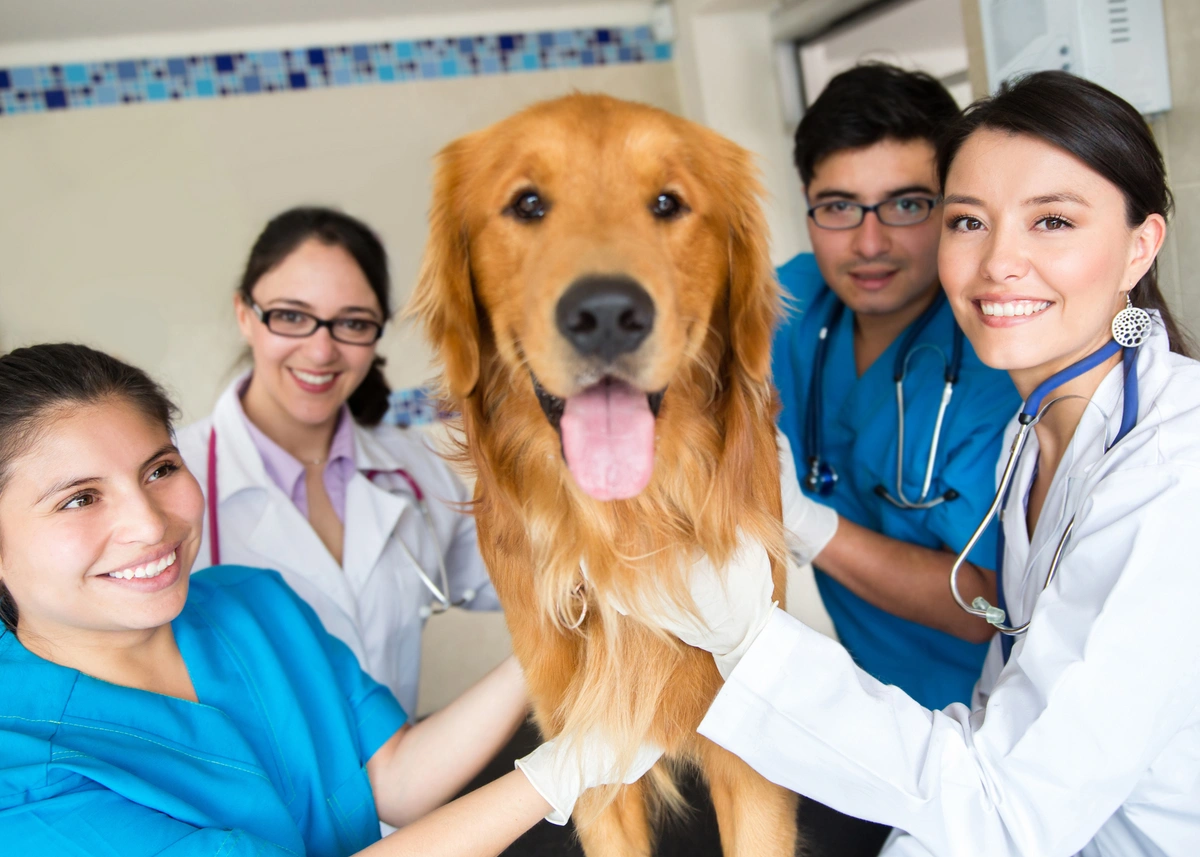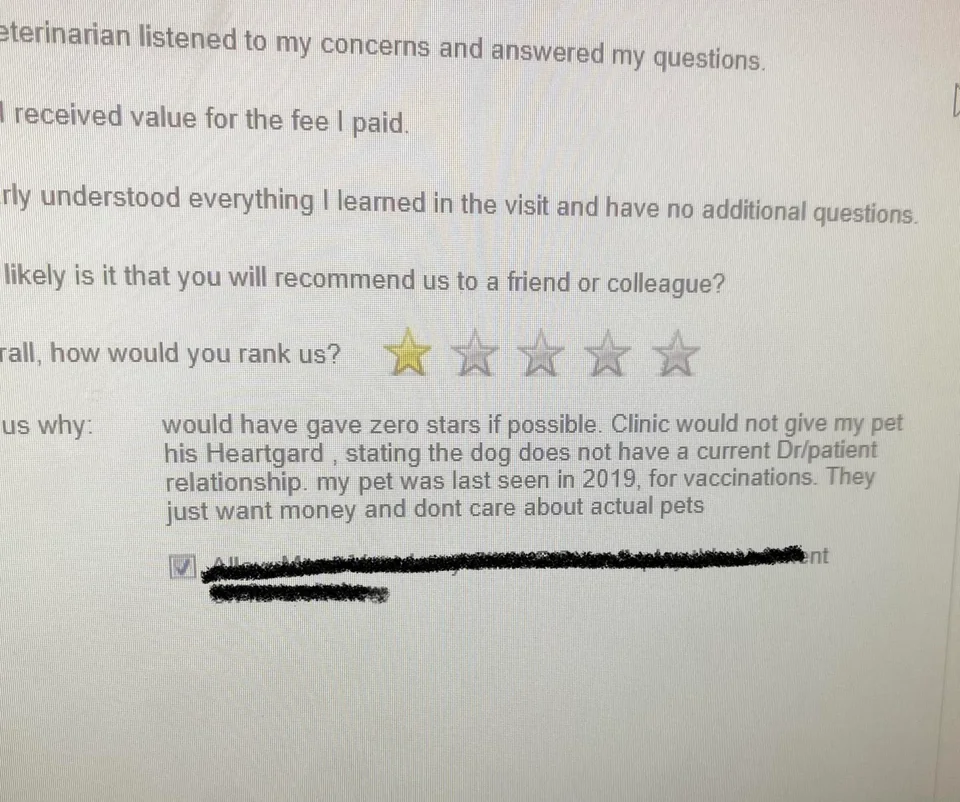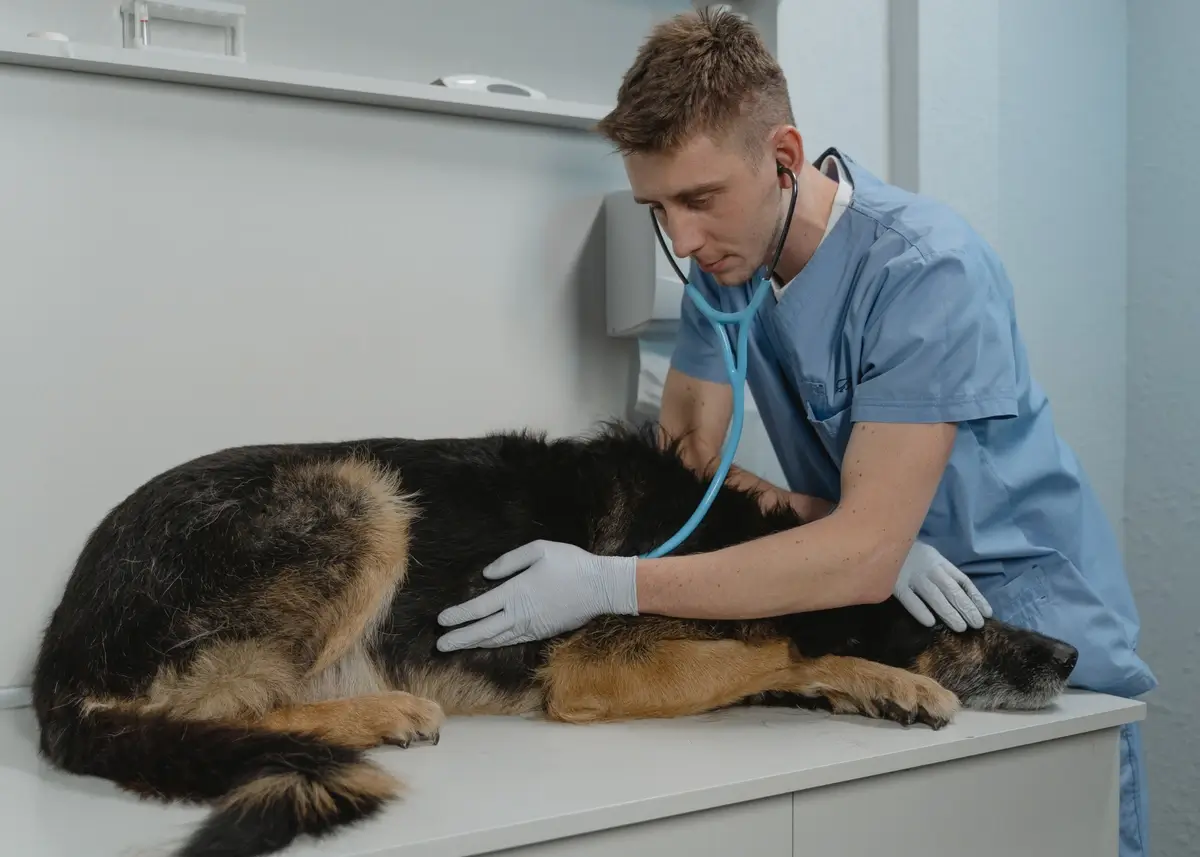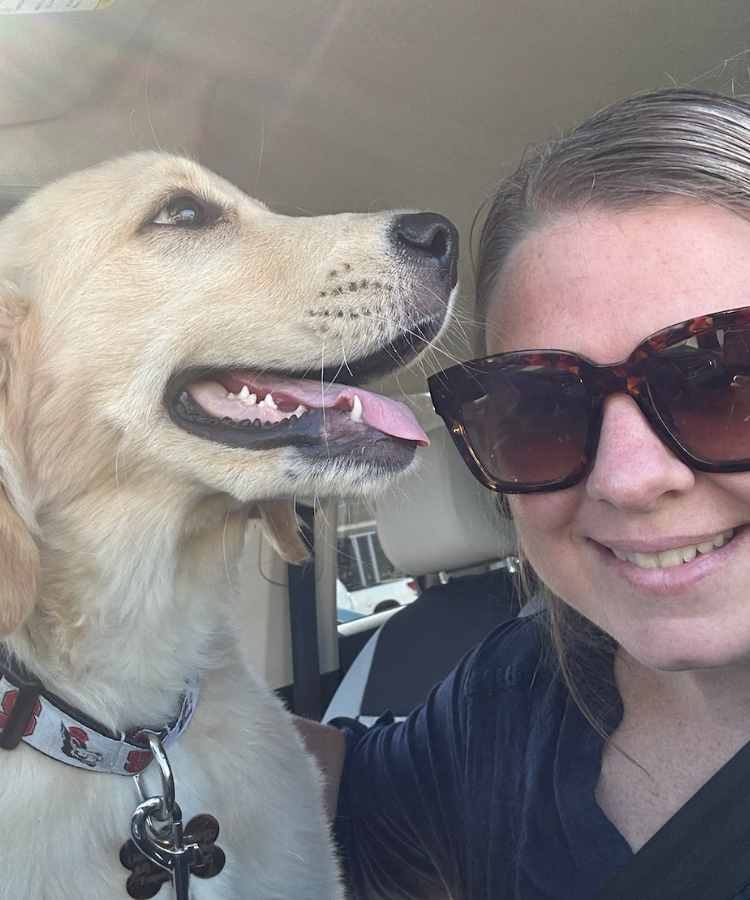Because you are a responsible puppy owner, you’ve researched how to choose the best veterinarian for your dog and have scheduled regular visits. “This is easy,” you think. “I’ll just take them in for check-ups and get on prevention medication, and that’s it!”
We all know puppies are curious bundles of fun and have a penchant for chewing on wool socks, swallowing wrappers, or getting hurt in the most unexpected ways. You’re going to need to visit the vet in those unforeseen circumstances.
If you find yourself at the emergency veterinarian, your emotions are already on high alert. You’re scared about your canine friend pulling through. That’s your baby, after all! You are beside yourself with worry.
“That’ll be $5,023.22, please. Cash or charge?”
“What?! How could that be?” You’re about to let your emotions get the best of you, feeling them bubbling up until you’re about to explode.
This scenario is common at veterinarian offices and hospitals all over the country.
Veterinarians work around the clock (literally in some cases) to keep America’s pets and working animals safe and healthy. They are highly educated and extremely skilled in their fields and have a wealth of knowledge to share, but only for those pet owners who are ready to receive it.
Mark Rosati of the American Veterinary Medical Association estimates there were 121,461 veterinarians in the United States practicing in Dec. 2021. While we wish we could survey each one of them, here are some things your vet wished you knew about what it’s like to work as a veterinarian or vet tech. We will protect these vets’ identities unless otherwise credited so they can speak freely. All of these insights into what your vet wants you to know are meant to inspire you to be the best veterinarian client you can be and encourage you to know your vet loves your pet and wants the best for them.
Here's What Your Vet Wants You To Know
From client behavior to hard days on the job, veterinarians want to speak on all sorts of aspects they wish you understood about their profession. Be thinking of how you can steer clear of these issues during your next vet visit, and be sure to show appreciation to your veterinary office staff!
Self-regulate your emotions
Try to stay cool, calm, and collected despite your fear and worry. Emotional and mental baggage will affect you in multiple ways and will manifest itself in the way we treat people – and our puppies as well.
“Animals can sense their owner’s emotions and are very in tune with their owners, and they need you to be their rock,” says Dr. Sarah Wooten.
Take some time to practice deep breathing to self-regulate so you don’t experience worse effects than what is happening to your puppy! What’s inside will spill out.
Practice the Golden Rule
One of the worst things you can do is to take out your emotions on the staff, especially the front desk receptionist or the person on the phone. No one deserves to be screamed at or threatened because you are letting your negative feelings take over.
“Oftentimes, the receptionist does not have a lot of the information you request, and they have to ask questions to the vet tech or vet. Sometimes they aren’t able to get the answer right away. Be open to the process. Remember to treat them with kindness because they want to help you.”
“I wish people knew more about Zero Tolerance for violent and abusive behavior because it contributes to the very thing that could help solve many issues. Not a lot of assistants and techs like the field because they’re forced to take the heat head-on most of the time and have to deal with abusive language and sometimes physical violence acted upon us all in the field.”
Being mortified about your puppy’s behavior
You may be blaming yourself for why your puppy needs an emergency vet visit. You may feel ashamed you don’t have the liquid funds available to pay for treatment in one fell swoop. You may be embarrassed at how your puppy is acting.
“Don’t worry if your puppy acts out of character. Dogs exhibiting fear can look like different behaviors: they won’t obey commands, might have accidents, growl or try to bite the vet, or jump off the table – we get it. We don’t believe there is a ‘bad’ animal. We know they’re in fight or flight mode, and it’s no reason for you to be ashamed or embarrassed about how your pet acts,” states Dr. Wooten.
Savvy puppy owners know that exams are required before administering any medication and that vets have to follow the law.
Don’t unfairly cyberbully or slander your vet online
Some people are quick to complain about anything they don’t like or understand about running a veterinarian practice, or how the field of veterinarian medicine operates.
“Just because you don’t like the pricing or are upset about your puppy’s illness doesn’t mean we are the enemies. Please try to settle the issue before you go talking badly about us online,” says an anonymous veterinarian.
“We were given a 1-star review for ‘not having a toilet in the waiting room. Here’s the kicker – we have a toilet in the waiting room.”
Even if you do have a legitimate concern, take it up with the vet’s office in a professional way to see if a resolution can be found. If you do choose to review your vet, keep emotions out of it and stick to the facts.
Veterinarians are highly educated
Becoming a veterinarian is a rigorous and rewarding process that requires dedication and a passion for animal health. The process mirrors Law and Medical Schools as far as the number of years for specialized study.
To become a veterinarian in the United States, you typically need to follow these steps according to one vet we spoke with:
- Undergraduate Education: Complete a bachelor's degree with a strong focus on pre-veterinary coursework, including biology, chemistry, physics, and mathematics.
- Veterinary College: Attend an accredited veterinary school, which typically requires four years of study. Obtain a Doctor of Veterinary Medicine (DVM) degree.
- Licensing: Pass the North American Veterinary Licensing Examination (NAVLE) or other state-specific licensing exams required by the state in which you plan to practice.
- Clinical Experience: Gain hands-on clinical experience through internships or externships during veterinary school.
- State Licensing: Apply for a state veterinary license in the state where you intend to practice. Licensing requirements vary by state.
- Specialization (Optional): Consider pursuing board certification in a specialized area of veterinary medicine through additional training and exams.
- Continuing Education: Stay current with your veterinary license by fulfilling state-specific requirements for continuing education and renewal.
- Professional Organizations: Join professional organizations like the American Veterinary Medical Association (AVMA) for networking and resources.
- Practice or Specialty: Choose to work in a clinical practice, research, public health, academia, or a specialized field within veterinary medicine.
- Own a Business: Some veterinarians begin their own practices and need to know how to run a successful business on top of practicing veterinary medicine.
@dr.adamchristman52 Do not argue with your vet over these 4 things. #vetmed #veterinarian #vettechtok #petparents #petsontiktok #vetlife #vetmedicine #coneofshame ♬ Monkeys Spinning Monkeys - Kevin MacLeod & Kevin The Monkey
Listen to our expertise
Now that you know the high level of advanced education a veterinarian needs, let them put that knowledge and expertise to use. Be open to hearing their advice, and be prepared to take it rather than argue about it.
“I wish that people in general trusted me more than their TV/Dr. Google/friend/etc. Stop using Dr. Google and your groomer to diagnose your pet. I'm happy to help educate willing clients on proper pet care. I'm just tired of arguing with people over what they have heard/read. You can ask me any question as long as you are willing to actually LISTEN to the answer I give you. Don't waste my time expecting me to provide an echo chamber for your own beliefs, and don't insult the years of specialized training and experience I have by acting like your 15-minute reading on some random website makes us equally informed on the issue.”
“Please don't come in thinking you already know the diagnosis and exact treatment. Very few conditions can be diagnosed from symptoms alone: I'd go so far as saying that the importance of symptoms is vastly overestimated by the general public. Ruling out other possible diagnoses is a crucial part of the diagnostic process.”
“Don't conclude that ‘vets have no clue’ when the first treatment attempt fails. We often use heuristics that will help the highest percentage of cases presenting like yours, and if your pet happens to not be one of them, that doesn't mean we don't have a Plan B.”
Keep up with recommended schedules and be proactive
Most vets agreed that their jobs could be easier if clients kept up with regular vaccinations for puppies and practiced preventative measures. Those puppy dog eyes will plead for those table scraps, but you can say no to help prevent obesity and its related complications. Likewise, you can make sure your dog is active to reduce the chances of a bored, destructive puppy hurting itself accidentally.
“Vaccinate, vaccinate, vaccinate. They work, and they exist for a reason. Utilize this technology so that you can enjoy more years with your animal companions.”
“Working in ER, my team sees a lot of preventable diseases and illnesses. Having a pet isn't a right, it's a privilege. I tell people often: ‘You wouldn't buy a new Corvette and go park in the rough part of downtown without insurance on it. So why do you adopt another life and then not vaccinate or spay/neuter or have insurance?’"
“It's not 'one and done' with animals. Where I live people tend to think the breeder got it it's 'shots', had a check-up, and now it's good. Forever. It will never need another checkup or boosters or dentals. If it's a healthy puppy now then surely it will be a healthy dog until it dies. None of that is true. If you're taking care of it, you're responsible for it throughout its life.”
Financial concerns
Veterinary medicine is a service that is still largely a cash-based business. Vet offices understand that most people don’t have thousands lying around to pay in full on the spot. With most emergency services, there’s going to be a huge sticker shock when you receive the bill, not to mention any follow-up visits, procedures, and medication, especially if you are not financially prepared to own a puppy.
Several of the veterinarians mentioned pain points of financial aspects that affected their client-vet relationship. Here are some things they want you to know regarding financial issues:
“We do have big hearts and want to give, give, give, but we can’t wave a magic wand and solve your financial problems, especially when you are upset. Trust me, we will work with you as much as we can within the realm of our business practices.”
“I wish they would ask me to do the right thing for their pet, and not the cheapest acceptable thing.”
“I wish people understood that a vet clinic is a business. No, we are not out to rip you off, but we have to keep the lights on. Nothing is more insulting to me than when people angrily accuse me of not caring about animals when I can't give away free services or products.”
“Realize that we're allies. We all want what is best for your pet at the end of the day. We can't cut costs as much as we would like because human medical companies make a lot of our supplies. Drugs and education are also very expensive. We will continue to worry about the animals whose owners can't afford care and walk out largely untreated, promising to go back to their regular vet.”
“I wish clients would understand that their pet's nurse probably makes less than a cashier at a grocery store so no, we aren't in it for money.”
“Doggy dental procedures are more expensive than yours because you actually brush your teeth and don't require full anesthesia. We recommend them for the healthiness of your pet, not because we love your money.”
Veterinarians follow laws
Some aspects of veterinary medicine are intertwined with laws regulating the industry. Some clients may forget that vet medicine is still medicine and is subject to regulatory measures in place.
“So many people either don't understand or refuse to understand that veterinarians just like MDs have to follow state and federal drug laws. I have had clients scream at me because we refused to fill more than 3 days of phenobarbital for their dog 8 months overdue for an exam. I have copied directly my state’s Veterinary Practice Act paragraph regarding exams and linked it to the federal DEA laws regarding controlled substances, and people still scream at us. Now we just give them the phone number for our two state senators and tell them to call those guys to get the laws changed.”
Come in for an exam when we ask for a visit
You may think a quick phone call or swinging by the office to pop in can take the place of an exam, but your vet will sometimes ask for a visit instead. They aren’t trying to waste your time or get more money out of you – they have legitimate reasons as to why they need your puppy to come in for a visit.
“I understand that you're seeing the exact same symptoms as when you were in 2 years ago. We still need to do an exam as it is not necessarily the same issue as before. I know that it is very stressful for your dog to come in, but I can't diagnose his skin condition over the phone.”
“We cannot legally prescribe medication for a pet we haven't seen for an exam. I'm very sorry that your regular clinic is closed, you're going on vacation tomorrow, and you're out of your dog’s medicine. Unless you bring your dog in for our veterinarians to examine, or have a written prescription, we can't simply give it to you. No, it's not about the money. No, I don't want your dog to be in pain. Would you take an empty vial of antibiotics to your pharmacist and demand that they fill it for you? It’s the same concept to protect all parties.”
Vets try to be gentle
It’s hard to see our furbabies in pain. It’s even more difficult for us when procedures will be uncomfortable and even painful while addressing the situation. Vets want you to know that they try to be as gentle as possible and are not purposefully trying to hurt your dog.
“We aren't sadists out to torture pets. I also understand that your dog doesn't want me to touch his infected foot, but that's the only way it's going to be cleaned. Also, please respect that if we ask someone else to hold your pet during the exam, it's not because we like to torture animals but because it is usually safer for everyone - you, me, and your pet - to restrain them by someone who knows what they're doing.”
Vets have a jam-packed day
Veterinary staff work jampacked workdays on long shifts with crises all day long in between regular visits. At an emergency vet or veterinary hospital, the days are even crazier. Avoid being that demanding client who puts their own wants and needs before others for selfish reasons.
“I do my very best as a tech to make sure clients are attended to quickly, but I work emergency in a 24-hour practice. If I'm making you wait and ignoring you when you swing by to pick up food at 2 a.m., it's because I'm busy with an emergency and you should be thankful to be in a situation where waiting is an option for you. Please stop screaming for me, pressing the doorbell, and using your cell to call my office number when I've already kicked open the door, told you I have an emergency and am in the middle of doing CPR – and you're here to get 6 cans of food. (My boss did fire that client, by the way).”
Let’s get physical
Vet techs and veterinarians want you to realize how their jobs can affect them physically. Placing animals on the table or holding them still for a procedure requires lots of strength and healthy backs and knees, which can physically take a toll on their bodies, not to mention being on their feet all day. They’re often the target of a scared animal’s sharp nails or teeth, incurring their own wounds as they try to fix your puppy’s.
However, being physical on the job is not always a negative thing. “I love how my job is so physical, I'm someone who can't sit around all day (I would explode if I was forced to work at the front desk, for example).”
Regarding messages and having patience
Whether the vet left a message with you or you want to leave a message, you must have patience when seeking out more information. Often times people will not be patient and will resort to rude, demanding behavior.
“As the receptionist, I am not the doctor's keeper. I have no control over the fact that he didn't call you back. Yes, I gave him your message. Yes, I reminded him. But, he's only human, and we had twelve appointments in a row, and he needed a mental break. I will do my best to make him call you back. I can only do so much.”
“If the doctor calls you and leaves a message regarding your pet, please listen to it before you call us back with a million questions. The doctor most likely just spent about 3-5 minutes explaining your lab work in depth and going over a plan. If you still have questions AFTER you listen, then call!”
Also, if you have a question, do not demand to speak with a doctor right away. 99% of your questions can be answered by the receptionist or technician. There is nothing more mind-numbing than a client who hasn't been here in 5 years calling and demanding to speak with a doctor they've never met. No. You need an exam.”
They’re crying with you even if you don’t see it
Vets have to hold it together and be professional, even when their hearts are about to burst. They want to save every animal and sometimes just can’t. It’s just as hard on them, and the job can really take an emotional toll on them.
“I still cry over euthanasias. I cry more over the ones that should be euthanized and won't be, for whatever reason. I worry about how your other pet will adjust when we euthanize his playmate and lifelong partner.”
“Just because I'm not crying or an emotional wreck doesn't mean I'm not sad or disappointed when a pet doesn't make it or gets a terminal diagnosis.”
“Your pets are always on our minds, even nights, weekends, and holidays.”
"We are sometimes crying with happiness and relief in the breakroom. Our tears aren't just due to sadness sometimes. It can be an overwhelming feeling of happiness and satisfaction when you've helped a dog through its darkest days find light again."
Don’t forget to say Thank You
Veterinarians and vet techs often don’t receive enough acknowledgment for all their hard work. It’s important to show your vet how much you appreciate all they do for your puppy, especially during those difficult days on the job. They can’t get enough displays of gratitude!
“We do love it when you show us some appreciation for what we're doing. A simple thank you can sometimes save a very crappy day.”
“There’s so much brightness in vet med, and there’s so much darkness. I love this field, and I’m lucky to work with a really amazing group, but it’s not for everyone. And I don’t think it gets nearly the recognition or respect it deserves.”
Examine Healthy Puppies For Sale at Pawrade
Now that you have more understanding of what your veterinarian would like you to know, you can start being a great client with a puppy of your own. Browse our puppies for sale to find the right furry friend for your lifestyle.




